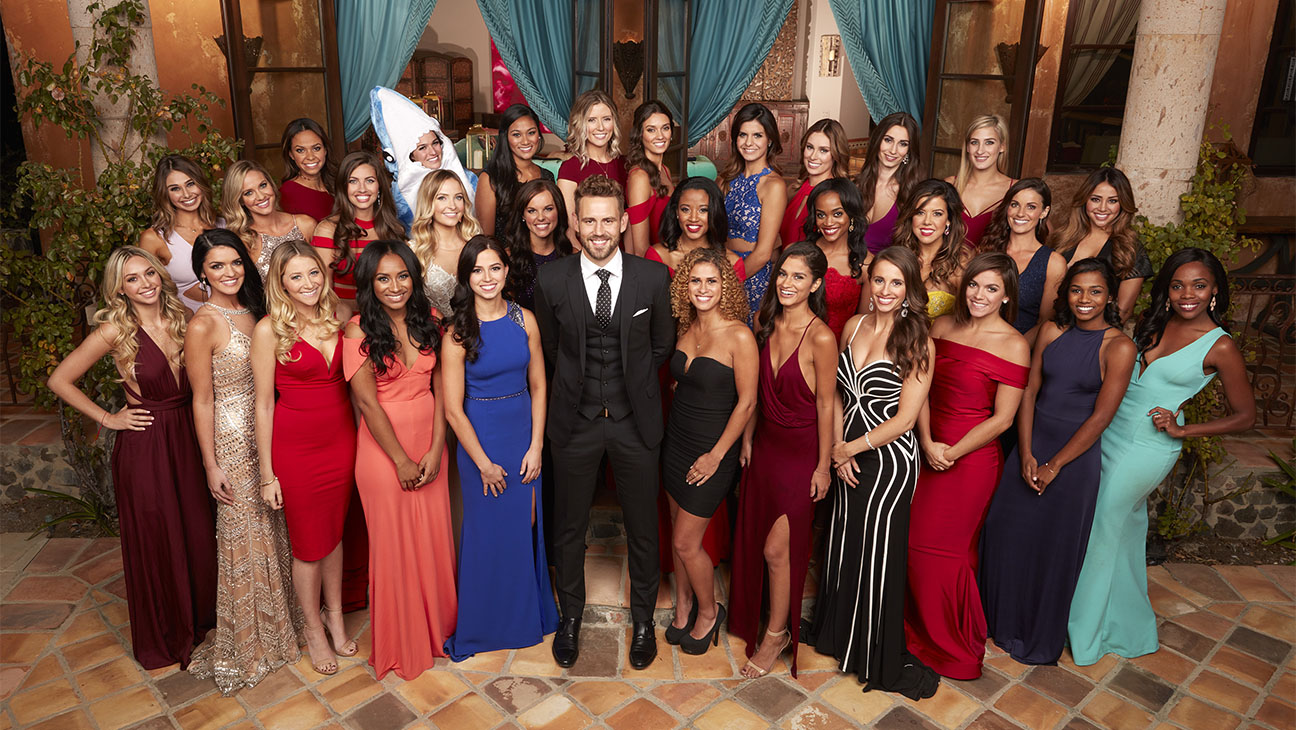Why is this still a thing?
The Bachelor Nation Edition
The dating world is incontestably changing. Tinder, Bumble, Plenty of Fish: apps that allow you to swipe through a sea of photos of “hot singles in your area” all from the comfort of your sofa cushions. We swipe right, super-like and toy with the boundaries of monogamish. Dating is exhilarating and exhausting, but courting as competition seems like an extension beyond the realm of reason. And yet, every Monday night at 8 pm, we’re all welcomed as citizens of Bachelor Nation.
The Bachelor, according to its Wikipedia page, is listed as a “dating game show” in which 25 women compete for the love and affection of a man deemed to be one of the most eligible studs “in all of America.” The contestants travel around the globe in their noble quests for love, living with their fellow competitors and participating in the most highly broadcasted instances of polyamory that network television has seen to date. At the rose ceremonies that conclude every episode, the Bachelor offers roses to the women for whom his feelings have grown the most over the course of that episode. At every ceremony, there are fewer roses than there were at the last, and the expectation is that the final woman standing will emerge with the heart of the Bachelor and a shiny ring on her finger.
In his book, Modern Romance, comedian Aziz Ansari makes recurrent references to an anecdote in which he “once met someone who found his wife by using Match.com and searching— and this is a direct quote— ‘Jewish and my zip code.’” It stands to reason that if Mr. Match.com could find his life partner through such a simple search and not from a pool of carefully selected, attractive and auspicious women, that a classically handsome, upper-class man who’s “just looking for love” could find the woman of his dreams, right?
Rubbish.
In keeping with the running theme of 2017, The Bachelor features a white, straight man continuously making disappointing decisions. Yet despite its format —one that’s been contested ever since it first aired in 2002— Bachelor Nation continues to thrive with an approximate viewing audience of ten million for its season finales. Long after the show should have wilted from our thoughts, we tune in to rose ceremony after rose ceremony to witness emotionally manipulated women cry over their successes and failures, through a strategically edited lens that crafts the most bathos for your buck.
The candidates are fashioned to fit into pre-conceived, two-dimensional models of women: the crazy girl, the drunk girl, the virgin, the bitch, etc. We’re sold on the fantasy of true love, but instead, we’re given carefully fabricated tales about malicious women who will stop at nothing until they reign champion and grace the cover of People magazine. They’re hot. They’re conniving. They’re props.
The Bachelor presents itself as a reality show when it lacks any grounding in the realm of the authentic. The show constructs a beautiful illusion, its scenes cut with footage from some of the world’s most beautiful cities, fuelled by candlelit dinners, long walks on the beach and the underlying attempt of one man trying to sleep with ten women all at once. A glimpse back into reality reveals that while each season finale is marked by two beautiful people making out under the setting sun, only one of the 21 seasons of The Bachelor to date has yielded an enduring marriage.
It should be noted that despite The Bachelor franchise’s sexist roots — notably, the time-honoured man-woman ratio — the Nation is likewise home to a selection of spinoff programming including The Bachelorette and the ever-popular Bachelor in Paradise. For those who’ve dismissed the world through rose-tinted glass: The Bachelorette mirrors The Bachelor, yet the reverses the proportions and roles of men and women, and Bachelor in Paradise is even more ambitious in its romantic enforcement: contestants must be part of a couple by each episodic conclusion (approximately every three days, real-time), or they’re sent home.
It’s heteronormative. It’s sexist. It’s often racist (more than half—59%—of black Bachelor and Bachelorette contestants leave the shows within 2 weeks, an none have lasted longer than 5 weeks into the process).
Roses are red,
The objective’s a ring;
The franchise is destructive,
So why is this still a thing?
Image curtesy of The Hollywood Reporter.
